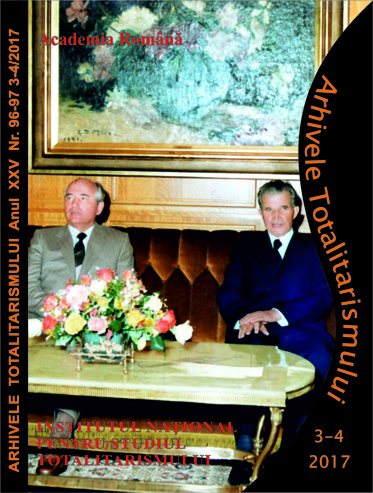The Goma Movement, Forty Years After:
Controversies, Amnesia and (Mis)Canonization
The Goma Movement, Forty Years After:
Controversies, Amnesia and (Mis)Canonization
Author(s): Cristina PetrescuSubject(s): History, Civil Society, Social history, Recent History (1900 till today), Post-War period (1950 - 1989)
Published by: Institutul National pentru Studiul Totalitarismului
Keywords: communist regimes; human rights; dissent; emigration; secret police; memory;
Summary/Abstract: The communist period in Romania suffers from an endemic shortage of respectable heroes.Consequently, most historical reconstructions take the so-called Goma Movement of 1977not only for a surrogate which fills this vacancy, but also for a human-rights-oriented protest which rallied a wide popular support against Ceaușescu’s dictatorship. The very name under which this collective protest is canonized, however, hints at the intrinsic connection with the personality of its most known proponent, writer Paul Goma. Unlike the movement he initiated under communism, Goma has turned in post-communism from a hero into a controversial character. Based on secret police files, this study dissociates dissident Goma from the Goma Movement and revisits both considering Romania’s current societal priorities in the process of democratic consolidation. As far as Paul Goma is concerned, the study illustrates that he was one of Romania’s longest-active cultural and political opponents of the communist regime. Taking into account that Romania still needs to distance itself from the legacies of its non-democratic past, his systematic endeavours at preserving the independence of thinking and action, while the dictatorship was heavily curtailing it and most individuals complied with these severe limitations, are definitely worth remembering. On the contrary, the Goma Movement in which he was a prime mover, this study argues, contrary to common knowledge, was hardly a human-rights-oriented protest, which deserves to be canonized as one of the most significant anti-communist revolts with wide popular support. Most of its proponents did not seek the improvement of human rights observance in Romania, but the opportunity to leave this country for good. In other words, this collective protest illustrates that the Romanians’ disagreement with the communist regime manifested itself primarily not by civic engagement, but by emigration, and thus it barely represents a usable past in the process of democratic consolidation.
Journal: Arhivele Totalitarismului
- Issue Year: XXV/2017
- Issue No: 3-4
- Page Range: 130-151
- Page Count: 22
- Language: English
- Content File-PDF

